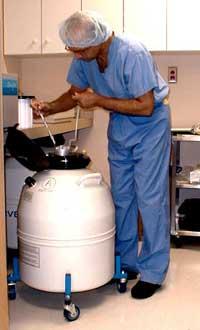New method to predict the viability of embryos
In fact, many couples who suffer from fertility treatment are more widespread than expected from internal and methodical problems. To make this difficult time more bearable for these couples, the new system of British researchers will only be for good.

One of the problems that has prevailed so far in fertility treatments is that the embryo often has difficulties to be placed correctly in the uterus. Henry Leese, professor of the Biology Department of the University of York, with the collaboration of members of the In Vitro Fertilisation Association, has tried to address this fertility problem. His study consists of closely following the development of embryos. British researchers have placed the embryos in a breeding zone and have tried to figure out the behavior of the amino acids. The embryos see two days after the experiment if it consumes or produces amino acid and depending on this they foresee the results of the fecundity.
Professor of Biology Leeds, on this process, says: "We have found an obvious difference between embryos that have developed properly and improperly: we have discovered that healthy embryos have a calmer and slower metabolism than the rest." In his opinion, this new method does not affect the embryos at all. Try to make a proper distribution or selection between healthy and non-useful embryos found in the uterus.
This new discovery will positively influence the patient's economic and emotional costs. In addition, this method serves to avoid multiple creations.
British doctors and researchers at the Leeds clinic hope that within two or three years this method will be applied in the rest of the hospitals.
Buletina
Bidali zure helbide elektronikoa eta jaso asteroko buletina zure sarrera-ontzian











